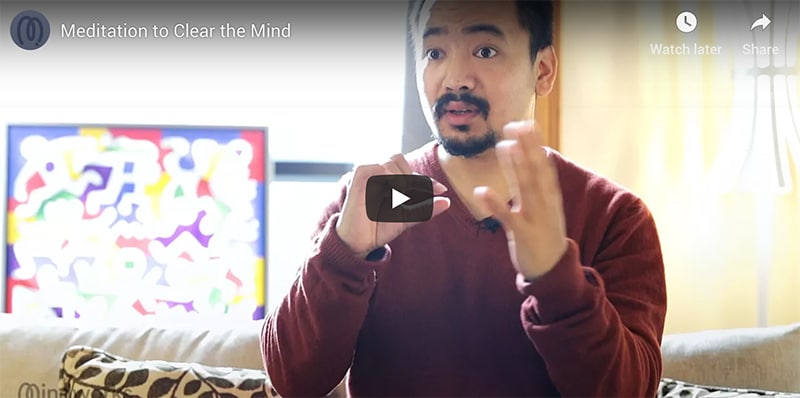How to Clear Our Minds and Create Space in Meditation
Category: How to Meditate | Mind Trainer Articles | Mindfulness and Awareness

Disrupting Copy and Paste Mentality
It is quite interesting that as human beings, our mental behavior often adopts a sort of copy and paste approach. If we’re not aware of our thought patterns, who we are and what we are may be defined by the way we repeat automatic behaviors learned since birth. In this case, our minds are cluttered by habitual responses and there’s no space to try a fresher, more wholesome mode of being. Meditation gives the mind the space it needs to (re)discover the natural balance, goodness and discernment that have always been there for the asking.
What We Put into Our Minds Really Matters
We give a great deal of attention to the way we dress, speak and behave, but if we’re not mindful we just copy previous episodes of our life story. Many people parrot what others say, watch the same popular movies, and read the newest books. My personal understanding is that if we’re not careful, we habitually reproduce the copy and paste mentality. In this sense, what we put into our minds to copy and paste really matters! We’re all aware that what we eat and drink has a significant effect on our bodies, but what we put into our minds has an even greater influence. Especially for our generation, with so much technology, people are moving very fast and are subjected to much more stress than previous generations. That’s why it’s more important than ever to practice meditation and clear the mind.
Information Overload Leads to Stress and Anxiety
From a psychological point of view, it’s very simple. Let’s say that normal people have around 30-40,000 thoughts each day. Thoughts come into our minds every second or so. The more sensory input we receive, the more our subconscious gets loaded with information of all kinds. Especially in big bustling cities, we experience so much with our five senses, we observe so much with our eyes and ears, that lots of input clutter gets stockpiled in our subconscious database.
Then our databases run out of space. Too much information is coming in too fast, not only from external perceptions, but also stimulated by Facebook and social media—way too much information for us to sort through and process in a calm, meaningful way. Rather than 30 or 40,000 thoughts a day, now they’re multiplied—maybe 50, 60 or 70,000 thoughts arise in the space of 24 hours. With all these overlapping and competing thoughts, it’s no wonder there’s so much stress and anxiety. Because of this overload, we don’t have space in our minds for ourselves, let alone for others. It can get to the point where we feel the whole thing isn’t working and we should see a psychologist or psychotherapist to regain our balance. That is why it’s so important to limit information input. And we can apply meditation techniques for anxiety. The question is: how do we do that?
Importance of Psychological Space in Your Mind
This notion of psychological space is connected to compassion. Compassion requires openness, which in turn requires psychological space. Imagine your whole psyche as a kind of pyramid—at the bottom is your subconscious and the top is your conscious room to maneuver. If you input too much information each day, the space at the top, the little space which is left, is squeezed out. By filling and overloading that space with meaningless information, you run out of space for yourself or others, and this makes you become very self-centered. Your ability to recognize meaningful knowledge and experience empathy is hindered simply due to a lack of space. In some cases, this becomes a psychological problem that can’t be controlled. An extreme lack of psychological space compounded with a lot of negative thoughts can create the potential for the terrible things people do in our society.
Meditation Clears Your Mind and Creates Mental Space
One of the best ways to clear the mind and create mental space is by meditating. If every morning you can meditate for ten or twenty minutes, you spend that time just sitting there quietly. During that meditation session, what happens in the mind? You could imagine that within those 20 minutes an equivalent amount of space is created within the subconscious mind: say 20%. That space will be beneficial for you as well as for others. I believe that it is less likely that you will be disturbed by difficult psychological problems if you meditate properly every day. Every day, that 20-minute oasis of psychological space is mindfulness, that space itself is compassion for others, that space itself is wisdom.
By creating mental space we more become mindful and increase our capacity for compassion, kind-heartedness and wisdom. Even if we only increase our psychological space by increments, the newfound mental clarity is enough to dramatically affect our lives. We don’t have to rely on others for our well-being; we have space. We can be mindful in everyday life – and even that 20%, in our lives, that’s a lot.
Watch the video below for a preview of Chogyal Rinpoche’s teaching in Mindworks Courses.







